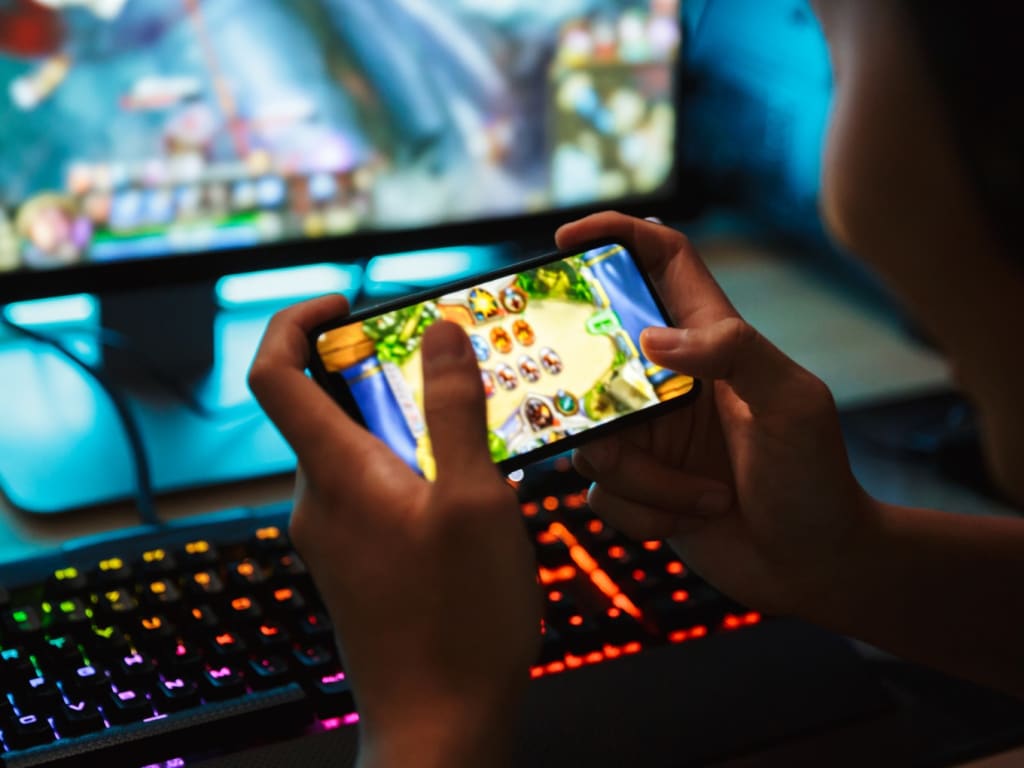The Impact of Online Gaming on Mental Health
A Comprehensive Review

Introduction:
Online gaming has become an increasingly popular form of entertainment in recent years, with millions of people worldwide participating in various games. While gaming can be a fun and engaging experience, it has also been associated with several negative effects on mental health. This article will provide a comprehensive review of the research on the impact of online gaming on mental health, exploring both the positive and negative effects, and providing examples to illustrate these effects.
Positive Effects of Online Gaming on Mental Health:
Several studies have suggested that online gaming can have positive effects on mental health. For example, research has shown that playing certain types of video games can improve cognitive function, including better memory, attention, and decision-making skills. For instance, a study conducted by the University of Rochester found that action video games can enhance the ability to multitask, switch between tasks, and maintain attention.
The immersive nature of online gaming can also provide a temporary escape from real-life stressors and can lead to improved mood, reduced stress levels, and increased social interaction. For instance, a study published in the Journal of Personality and Social Psychology found that playing cooperative video games with friends can increase prosocial behavior and decrease aggressive behavior.
Additionally, online gaming can serve as a platform for learning and education. Many games require players to solve problems, think critically, and strategize, all of which can improve cognitive abilities. For example, the game Minecraft has been used in classrooms to teach subjects such as math and geography, and a study published in the Journal of Educational Psychology found that playing the game can improve spatial skills.
Negative Effects of Online Gaming on Mental Health:
Despite these potential benefits, there are also several negative effects associated with online gaming. One of the most common negative effects is addiction, which can lead to social isolation, poor academic performance, and decreased physical activity. Addiction to online gaming is often characterized by preoccupation with gaming, withdrawal symptoms when not playing, and difficulty cutting back on playing time. For example, a study published in the Journal of Adolescent Health found that 8.5% of adolescents who play online games meet the criteria for internet gaming disorder.
Additionally, online gaming has been associated with increased aggression, particularly in younger players. This aggression can be manifested both online and offline, leading to conflict with peers and family members. For instance, a study published in the Journal of Youth and Adolescence found that playing violent video games was associated with increased physical aggression over time.
Furthermore, excessive online gaming can lead to sleep disturbances, which can have negative effects on mental health. Studies have shown that individuals who spend more time gaming have a higher likelihood of experiencing sleep problems, which can, in turn, lead to issues such as anxiety and depression. For example, a study published in the Journal of Sleep Research found that excessive gaming was associated with poorer sleep quality in adolescents.
Finally, online gaming has been linked to a higher risk of developing depression and anxiety, particularly in those who spend a significant amount of time gaming. The social isolation that can occur with excessive gaming can contribute to the development of these conditions. For instance, a study published in the Journal of Abnormal Child Psychology found that excessive internet use, including gaming, was associated with higher levels of depression and anxiety in adolescents.
Conclusion:
Overall, while online gaming can have some positive effects on mental health, it is also associated with several negative effects. As such, it is important to strike a balance between gaming and other activities, particularly for young people, to avoid the negative effects of excessive gaming. Parents and caregivers can help by setting limits on screen time, encouraging physical activity and social interaction, and monitoring for signs of addiction. Additionally, interventions such as cognitive-behavioral therapy and support groups may be helpful for individuals struggling with online gaming
About the Creator
Arda YILDIZ
Hi, I'm Arda. As a 20-yr-old Comp Eng student, I enjoy playing guitar (13 yrs!), reading books, and listening to music. With advanced English skills, I love connecting with people from all over the world and learning about new cultures.
Enjoyed the story? Support the Creator.
Subscribe for free to receive all their stories in your feed. You could also pledge your support or give them a one-off tip, letting them know you appreciate their work.
Reader insights
Nice work
Very well written. Keep up the good work!
Top insights
Compelling and original writing
Creative use of language & vocab
Easy to read and follow
Well-structured & engaging content
Eye opening
Niche topic & fresh perspectives
On-point and relevant
Writing reflected the title & theme






Comments (1)
It's a pretty descriptive article on the subject. Congratulations.